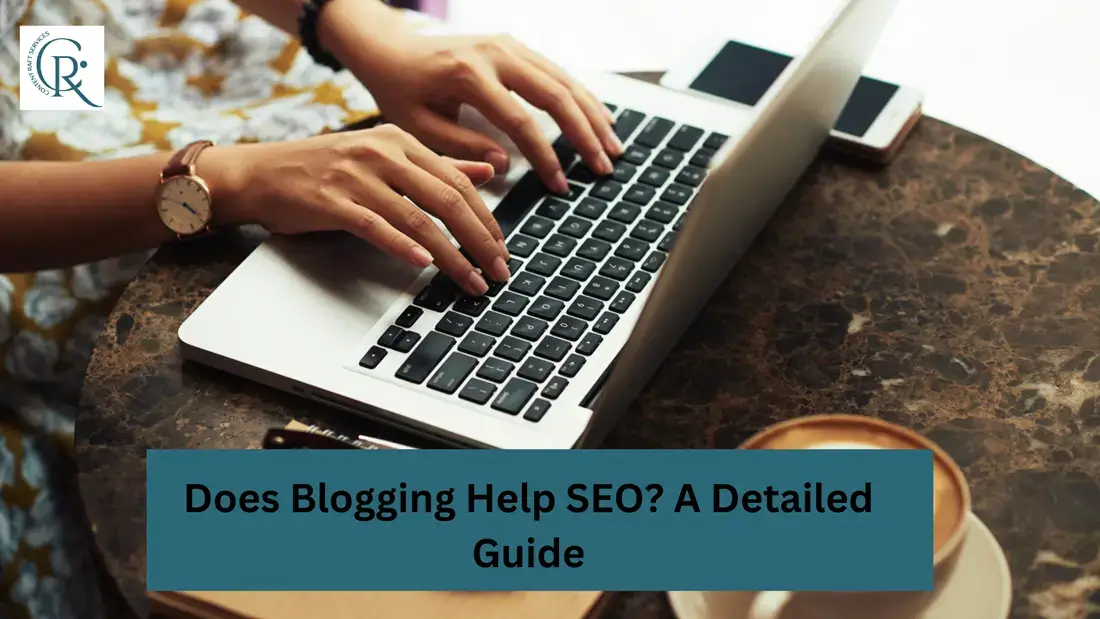
Yes, blogging significantly helps with SEO. It serves as a powerful strategy to drive organic traffic, improve search engine rankings, and establish online authority. From keyword targeting to internal linking, blogging offers multiple SEO benefits that can boost your website’s visibility and performance in search results.
In this guide, we’ll break down exactly how blogging impacts SEO and why it’s an essential part of any digital marketing strategy.
1. Fresh Content Creation
Search engines like Google prioritize websites that are active and regularly updated. Blogging allows you to consistently add fresh content to your site, signaling to search engines that your website is alive and relevant.
- Regular blog posts keep your website dynamic.
- New content gives search engines more pages to index.
- It provides more opportunities to rank for different search terms.
Tip: Posting regularly (even once a week) can significantly improve your site’s crawl rate and authority.
2. Targeted Keyword Optimization
Each blog post is a chance to target specific keywords and long-tail phrases your audience is searching for.
- Helps you rank for more diverse and specific queries.
- Allows you to naturally include keywords in headers, meta descriptions, and content.
- Targets search intent more precisely, increasing click-through rates.
Example: A bakery writing blog posts like “Best Cakes for Birthdays in [City]” or “How to Store Cupcakes Overnight” can rank for localized and niche terms.
3. Link Building Opportunities
Backlinks—links from other websites to yours—are one of the top-ranking factors for SEO. High-quality blog content increases your chances of earning these links.
- Informative or shareable posts attract backlinks organically.
- Blog posts can be pitched for guest posting or featured in industry roundups.
- Visual content (like infographics) embedded in blogs often get cited and linked.
According to Ahrefs, 91% of web pages get no traffic from Google, mainly because they have no backlinks.
4. Enhanced User Engagement
Well-crafted blogs engage users and encourage them to spend more time on your site.
- Increased time-on-page signals content value to search engines.
- Posts that answer questions reduce bounce rate.
- Interactive content (quizzes, polls, comments) can boost engagement metrics.
Google uses behavioral data like dwell time and bounce rate as indirect ranking signals.
5. Internal Linking Structure
Each blog post presents a chance to implement strategic internal linking.
- Guides users to other relevant pages on your site.
- Helps search engines understand site architecture.
- Distributes link equity across key landing pages and product pages.
Use descriptive anchor text when linking to internal pages to help both users and bots.
6. Boosting Local SEO
If your business serves a specific geographic area, blogging for local SEO is invaluable.
- Create blog posts around local events, news, or guides.
- Use geo-targeted keywords to attract nearby customers.
- Helps you show up in “near me” or “[city] + service” searches.
Example: A dentist in Dallas could blog about “Top 5 Teeth Whitening Clinics in Dubai” to target local intent.
Final Thoughts: Is Blogging Still Worth It for SEO?
Absolutely. Blogging is more than just writing—it’s a core part of a successful SEO strategy. It helps you stay relevant, target keywords naturally, build domain authority through backlinks, and connect with your audience on a deeper level.
Whether you’re a small business, an e-commerce store, or a service provider, consistent and optimized blogging can improve your SEO and deliver long-term results.
Need Help Starting a Blog? If you’re unsure where to begin, consider hiring an SEO expert in UAE or using blogging platforms like WordPress to get started. Blogging can be one of the most effective ways to grow your online presence and achieve long-term SEO success.
FAQs
Does Blogging Help SEO?
Yes, blogging significantly helps SEO by improving website visibility, providing fresh content, and increasing keyword rankings. A well-optimized blog can attract more organic traffic, encourage backlinks, and enhance user engagement, all of which contribute to better search engine rankings.
How Much Do Blog Posts Help SEO?
Blog posts are crucial for SEO as they:
- Provide fresh, relevant content that search engines favor.
- Improve keyword optimization, helping your site rank for targeted search queries.
- Encourage backlinks from authoritative sites, signaling credibility.
- Increase website traffic and engagement, which positively impacts SEO.
- Enhance internal linking structure, making it easier for search engines to index content.
Which Blog is Best for SEO?
The best blogging platforms for SEO include:
- WordPress.org – Offers full control over SEO settings, customizable plugins (Yoast SEO, Rank Math), and a vast array of themes.
- Wix – Provides built-in SEO tools and is beginner-friendly.
- Squarespace – Has solid SEO capabilities with automatic sitemaps and clean URLs.
- Medium – Good for audience reach but less effective for driving traffic to your own domain.
- Ghost – Ideal for fast performance and built-in SEO features.
Do Blogs Help Local SEO?
Yes, blogs help local SEO by:
- Targeting location-based keywords in blog content.
- Covering local events, news, and industry trends to increase relevance.
- Encouraging backlinks from local businesses and websites.
- Enhancing Google My Business presence through localized blog links.
Is Google Blogger Good for SEO?
Google Blogger is not the best choice for SEO because:
- It has limited customization and plugin support compared to WordPress.
- SEO optimization options are restricted.
- It lacks advanced technical SEO features like schema markup and structured data.
How Do I Know If My Blog Is SEO-Friendly?
Your blog is SEO-friendly if it:
- Loads quickly and is mobile-responsive.
- Contains well-researched, relevant keywords.
- Has properly formatted title tags, meta descriptions, and headers.
- Uses internal and external links strategically.
- Has structured URLs with clear, concise naming.
- Includes optimized images with alt text.
- Features high-quality, original content.
Are Blogs or Pages Better for SEO?
Both blogs and pages serve different SEO purposes:
- Blogs are great for continuously updated, informative content that targets specific keywords and attracts backlinks.
- Pages (e.g., homepage, service pages) are better for static, high-value content like business information and product/service details.
- A combination of both is ideal for a well-rounded SEO strategy.
How Do I Get SEO for My Blog?
To optimize your blog for SEO:
- Conduct keyword research and use relevant keywords naturally.
- Optimize blog titles, meta descriptions, and headers.
- Include high-quality internal and external links.
- Use alt text for images and optimize file sizes.
- Ensure mobile-friendliness and fast loading speeds.
- Publish consistently with high-quality, valuable content.
- Promote blog posts via social media and email marketing.
How Long Should Blogs Be for SEO?
- Short-form (300-600 words): Suitable for quick updates, FAQs, or news.
- Medium-form (1000-1500 words): Ideal for detailed guides and evergreen content.
- Long-form (2000+ words): Best for in-depth articles, case studies, and ultimate guides, as they tend to rank higher in search engines.
